Thomas Grey, 1st Marquess of Dorset, 1st Earl of Huntingdon, 7th Baron Ferrers of Groby, was an English nobleman, courtier and the eldest son of Elizabeth Woodville and her first husband Sir John Grey of Groby. Her second marriage to King Edward IV made her Queen of England, thus elevating Grey's status at court and in the realm as the stepson of the King. Through his mother's endeavours, he made two materially advantageous marriages to wealthy heiresses, the King's niece Anne Holland and the King’s cousin, Cecily Bonville, 7th Baroness Harington. By the latter, he had 14 children.

Earl of St Germans, in the County of Cornwall, is a title in the Peerage of the United Kingdom that is held by the Eliot family. The title takes its name from the village of St Germans, Cornwall, and the family seat is Port Eliot. The earldom has the subsidiary title of Baron Eliot.
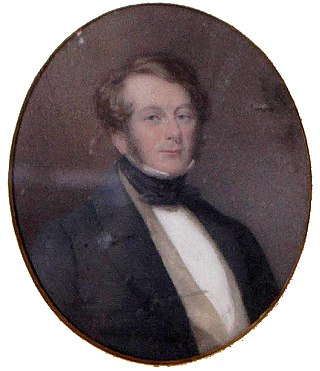
Edward Granville Eliot, 3rd Earl of St Germans, styled Lord Elliot from 1823–45, was a British politician, peer, and diplomat.

Major General Roger Elliott was one of the earliest British Governors of Gibraltar. A member of the Eliot family, his son Granville Elliott became the first Count Elliott and his nephew George Augustus Eliott also became a noted Governor and defender of Gibraltar.
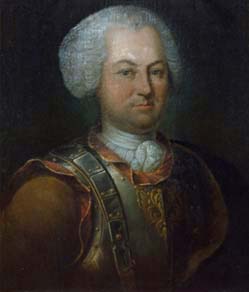
Major-General Granville Elliott, 1st Count Elliott, was a British military officer who served with distinction in several other European armies and subsequently in the British Army. He fought at the Battle of Minden where he was wounded, dying of his injuries several weeks later.
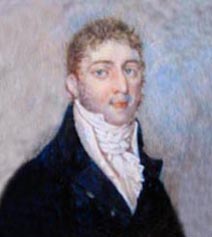
Francis Perceval Eliot was an English soldier, auditor, and man of letters. In 1814 he succeeded his half-brother as Count Eliot, however he did not feel it was proper to assume the title.

William Eliot, 2nd Earl of St Germans, styled as Hon. William Eliot from 1784 until 1823, was a British peer, diplomat and politician.
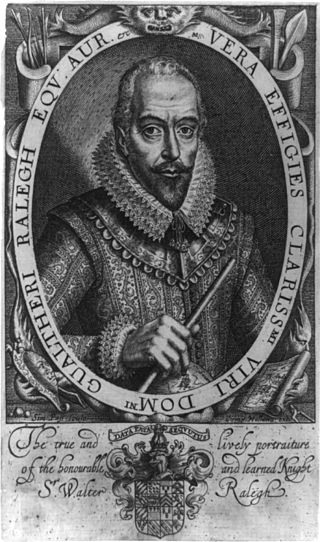
The Lord Warden of the Stannaries used to exercise judicial and military functions in Cornwall, England, UK, and is still the official who, upon the commission of the monarch or Duke of Cornwall for the time being, has the function of calling a stannary parliament of tinners. The last such parliament sat in 1753.
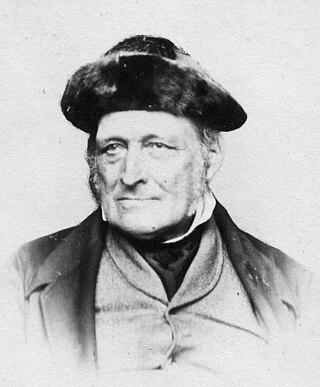
Captain Edward John Eliot was an English soldier.
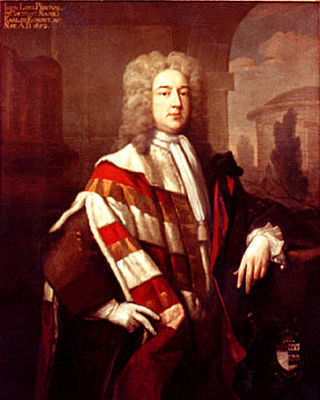
John Perceval, 1st Earl of Egmont, PC, FRS, known as Sir John Perceval, Bt, from 1691 to 1715, as the Lord Perceval from 1715 to 1722 and as the Viscount Perceval from 1722 to 1733, was an Anglo-Irish politician.
Elliot is a personal name which can serve as either a surname or a given name. Although the given name has historically been given to males, females have increasingly been given the name as well in the United States.

Thomas Grey, 2nd Marquess of Dorset was an English peer, courtier, soldier and landowner of the House of Grey.

Sir Philip Courtenay of Powderham, Devon, was the senior member of a junior branch of the powerful Courtenay family, Earls of Devon.
Elizabeth Eliot may refer to:
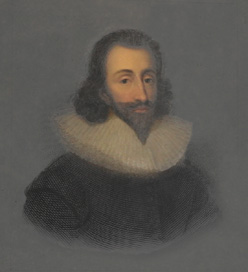
Sir John Eliot was an English statesman who was serially imprisoned in the Tower of London, where he eventually died, by King Charles I for advocating the rights and privileges of Parliament.
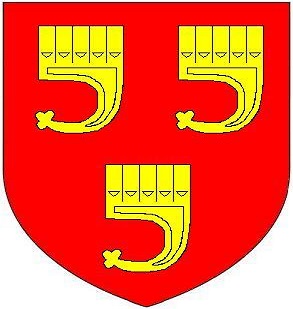
The manor of Bideford in North Devon was held by the Grenville family between the 12th and 18th centuries. The full descent is as follows:

Great Fulford is an historic estate in the parish of Dunsford, Devon. The grade I listed manor house, known as Great Fulford House, is about 9 miles west of Exeter. Its site was said in 1810 to be "probably the most ancient in the county". The present mansion house is Tudor with refurbishment from the late 17th century and further remodelling from about 1800. The prefix "Great" dates from the late 17th century and served to distinguish it from the mansion house known as "Little Fulford" in the parish of Shobrooke, Devon, about 8 miles to the north-east, also owned briefly by Col. Francis Fulford (1666–1700), as a result of his marriage to the heiress of the Tuckfield family. Great Fulford has been the residence of the Fulford family, which took its name from the estate, from the reign of King Richard I (1189–1199) to the present day. There are thus few, if any, families in Devonshire of more ancient recorded origin still resident at their original seat. In 2004 the estate comprised 3,000 acres.
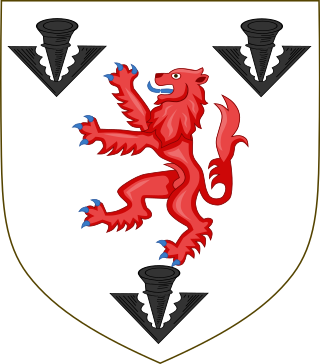
The Egerton family is a British aristocratic family. Over time, several members of the Egerton family were made Dukes, Earls, knights, baronets and peers. Hereditary titles held by the Egerton family include the dukedoms of Bridgewater (1720–1803) and Sutherland, as well as the earldoms of Bridgewater (1617–1829), Wilton (1801–1999) and Egerton (1897–1909). Several other members of the family have also risen to prominence. The Egerton family motto is Virtuti non armis fido.
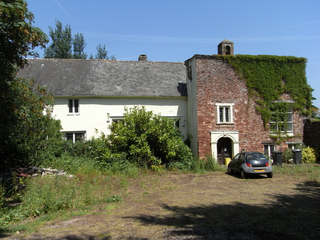
Blagdon historically in the parish of Paignton in Devon, England (today in the parish of Collaton St Mary), is a historic Manor, the seat of the Kirkham family from the 13th to 17th centuries. The manor house known as Blagdon Manor (House) (or Blagdon Barton) survives as a grade II* listed building about two miles west of the historic centre of the town of Paignton, situated behind the "Blagdon Inn" public house (former stables), and almost surrounded by the "Devon Hills Holiday Park" of caravans and mobile homes, set-back at the end of a short driveway off the A385 Paignton to Totnes road. The settlements or farms of Higher Blagdon, Middle Blagdon and Lower Blagdon are situated to the north of the manor house.
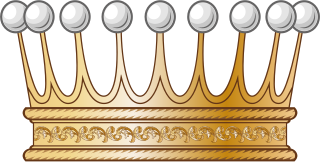
Count Elliott was a hereditary title in the Holy Roman Empire held by the Eliot military family. The title encompassed Count of the Holy Roman Empire, Comte de Morhange, and Graf von Port Eliot.




















